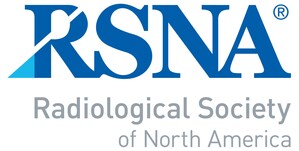Monday, Nov. 29: News From the 96th Scientific Assembly and Annual Meeting of the Radiological Society of North America (RSNA) in Chicago
CHICAGO, Nov. 29, 2010 /PRNewswire-USNewswire/ --
New Study Reports Effects of Endurance Running
Using a mobile MRI medical unit, researchers from the University of Ulm, Germany, followed 44 runners for two months along a 4,500-kilometer course to study the effects of long-distance running on the body. Advanced MRI techniques allowed the researchers to quantify muscle tissue, fat and cartilage changes. The results showed that runners lost an average of 5.4 percent body volume and 50 percent body fat during the course of the race. The greatest amount of overall fat loss appeared early in the process. The researchers cautioned that runners who stop running regularly should reduce their caloric input or opt for other aerobic exercises to avoid experiencing weight gain.
Light Exercise May Prevent Osteoarthritis
A new study from the University of California, San Francisco, found that people at risk for osteoarthritis may be able to delay the onset of the disease or even prevent it with simple changes to their physical activity. The researchers studied 132 asymptomatic individuals at risk for knee osteoarthritis, as well as 33 control participants, grouped by exercise and strength-training levels from sedentary to strenuous. MRI results showed that engaging in light exercise and avoiding frequent knee-bending activities may protect against cartilage degeneration and the onset of osteoarthritis, while frequent participation in high-impact activities, such as running, may increase the risk for these conditions.
Walking Slows Progression of Alzheimer's
A new study from the University of Pennsylvania found that walking may slow cognitive decline in adults with mild cognitive impairment (MCI) and Alzheimer's disease, as well as in healthy adults. The researchers analyzed the relationship between physical activity and brain structure in 426 people, including 299 healthy adults, and 127 cognitively impaired adults, including 83 adults with MCI and 44 adults with Alzheimer's dementia. The findings showed that cognitively impaired people needed to walk at least 58 city blocks, or approximately five miles, per week to maintain brain volume and slow cognitive decline.
Women With Personal History of Breast Cancer Should be Screened With MRI
Women with a personal history of breast cancer should consider annual screening with MRI in addition to mammography, according to a new study from University of Washington Medical Center and Seattle Cancer Care Alliance. The American Cancer Society guidelines currently recommend annual screening with breast MRI in women with a genetic or family history of breast cancer, but there are no MRI screening recommendations in place for women who have had breast cancer themselves. The researchers performed a review of the initial screening breast MRI examinations of 1,026 women with genetic, family or personal history of breast cancer. The cancer yield in the women with a personal history of breast cancer was double that of the women with a genetic or family history, and the recall and biopsy rates were lower.
Diagnosis Uncertainty Increases Anxiety in Patients
Not knowing your medical diagnosis can be more stressful than undergoing treatment for a serious illness, according to researchers from Harvard Medical School who studied the stress levels of 214 women scheduled to undergo different diagnostic and treatment procedures, including breast biopsy, chemoembolization for liver cancer and uterine fibroid embolization. Breast biopsy patients experienced significantly higher levels of anxiety than the other patient groups. The results suggest that physicians and patients should not downplay the emotional toll of diagnostic exams.
Tuesday news conferences focus on heart disease in African Americans and people with obstructive sleep apnea, a minimally invasive treatment for hamstring injury, dangers associated with belly fat, and acupuncture's effect on the brain.
FOR PHONE INTERVIEWS, PRESS RELEASES, B-ROLL OR OTHER INFORMATION, CONTACT: RSNA Newsroom – 312-949-3233; after Dec. 2, 2010 call 630-590-7762.
SOURCE Radiological Society of North America (RSNA)
WANT YOUR COMPANY'S NEWS FEATURED ON PRNEWSWIRE.COM?
Newsrooms &
Influencers
Digital Media
Outlets
Journalists
Opted In





Share this article